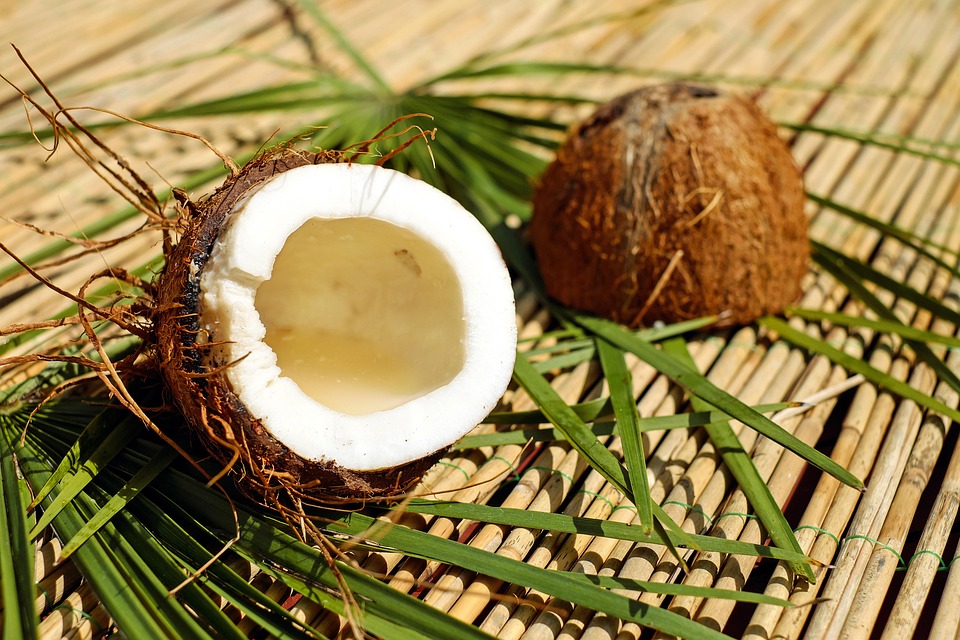Nuts for inflammation are nature’s little powerhouses, packed with the nutrients your body craves to combat chronic inflammation. If you’re dealing with aches, pains, or just a general sense of fatigue, understanding how these tiny gems can support your health is vital.
Inflammation may be a word you’ve heard tossed around, but what does it really mean? It’s your body’s natural response to injury or infection, a complex process intended to heal. However, when inflammation becomes chronic, it can lead to serious health issues, including heart disease, diabetes, and arthritis. That’s where nuts come into play; these nutrient-dense snacks are not only delicious but can also help manage inflammation.
Contents
Why Nuts for Inflammation Matter
Incorporating nuts into your diet isn’t just about snacking; it’s about nurturing your body. They are rich in healthy fats, antioxidants, vitamins, and minerals that can help reduce inflammation and improve overall health. Most importantly, they’re easy to add to your meals or enjoy on their own.
Curious about which nuts are most effective? Let’s dive into the top seven nuts for inflammation, and how they can make a difference in your life.
1. Walnuts: The Omega-3 Powerhouse
Walnuts are often hailed as one of the best nuts for inflammation, and for good reason. They are one of the few plant-based sources of omega-3 fatty acids, which are known to fight inflammation at the cellular level.
- Benefits:
- Rich in alpha-linolenic acid (ALA), a type of omega-3.
- Studies show that regular walnut consumption can reduce inflammatory markers in the body.
Adding walnuts to your diet can be as simple as tossing a handful into your morning oatmeal or salad. Your body will thank you!
2. Almonds: The Vitamin E Champion
Almonds are not just a tasty treat; they’re also packed with vitamin E, a powerful antioxidant that can combat oxidative stress and inflammation.
- Benefits:
- High in healthy monounsaturated fats.
- A study revealed that people who consumed almonds regularly had lower levels of C-reactive protein, an inflammation marker.
Snack on a handful of almonds or sprinkle them on yogurt for a crunchy, nutritious boost.
3. Pistachios: The Heart Helpers
Pistachios are small but mighty when it comes to fighting inflammation. These vibrant green nuts are loaded with nutrients that support heart health and reduce inflammation.
- Benefits:
- Contain phytosterols, which can help lower cholesterol levels.
- Research indicates eating pistachios can improve blood vessel function.
Add a few pistachios to your trail mix or enjoy them roasted and salted as an afternoon snack. Your heart will appreciate it!
4. Brazil Nuts: The Selenium Source
Brazil nuts are unique in their high selenium content, a mineral with potent anti-inflammatory properties. Just a small handful can provide you with your daily selenium needs.
- Benefits:
- Selenium helps reduce inflammation in conditions like asthma and arthritis.
- They also contain healthy fats and other essential vitamins.
Enjoy Brazil nuts on their own or chopped into your favorite baked goods for an extra nutritional punch.
5. Cashews: The Magnesium Marvels
Cashews are creamy and delicious, but they’re also a great source of magnesium, which plays a crucial role in reducing inflammation.
- Benefits:
- Magnesium deficiency is linked to inflammation and chronic disease.
- Cashews also contain antioxidants that help combat free radicals.
Use cashews to create a creamy vegan cheese or simply enjoy them raw or roasted.
6. Hazelnuts: The Fiber Boosters
Hazelnuts are not only tasty but also rich in fiber, which is essential for gut health. A healthy gut can significantly impact inflammation levels in your body.
- Benefits:
- High fiber content supports digestion and gut health.
- Rich in antioxidants that can help reduce oxidative stress.
Incorporate hazelnuts into your smoothies or enjoy them as a snack to reap the benefits.
7. Macadamia Nuts: The Monounsaturated Fat Kings
Macadamia nuts are known for their buttery flavor and high content of monounsaturated fats, which can help lower inflammation and support heart health.
- Benefits:
- Studies show they may lower cholesterol levels and reduce heart disease risk.
- Packed with antioxidants that fight oxidative stress.
Sprinkle macadamia nuts over salads or use them in baking for a deliciously healthy treat.
How to Incorporate Nuts into Your Diet
Getting the most out of nuts for inflammation means knowing how to incorporate them into your daily meals. Here are some simple tips to get you started:
- Breakfast Boost: Add a handful of nuts to your oatmeal or yogurt.
- Snack Smart: Keep mixed nuts handy for a quick snack.
- Salad Sensation: Toss nuts into salads for added crunch and nutrition.
- Baking Bliss: Use nut flours or chopped nuts in baking recipes.
The Science Behind Nuts and Inflammation
Research backs up the benefits of nuts for inflammation. Studies have shown that including nuts in your diet can lead to reduced inflammatory markers and improved heart health.
For instance, a study published in the American Journal of Clinical Nutrition found that participants who consumed nuts regularly had lower levels of inflammatory markers. A wealth of other studies support these findings, making a strong case for including nuts in your everyday meals.
For further reading, check out the information from the Harvard T.H. Chan School of Public Health and the Cleveland Clinic for more insights.
Bottom Line
Incorporating nuts for inflammation into your daily routine can be a delicious and effective way to combat chronic inflammation. With their rich profiles of healthy fats, antioxidants, and essential nutrients, these little powerhouses can make a significant difference in your health.
Don’t hesitate—start adding these nuts to your diet today. Your body deserves the best, and these natural wonders are just a handful away.
FAQ
Q: How many nuts should I eat daily for inflammation?
A: A handful (about 1 ounce) of nuts daily is a healthy amount to include in your diet.
Q: Are all nuts beneficial for inflammation?
A: While most nuts have health benefits, walnuts, almonds, and pistachios are particularly noted for their anti-inflammatory properties.
Q: Can nuts replace other sources of protein?
A: Nuts can be a great addition to your protein sources, but they are not a complete protein. Pair them with other protein-rich foods for a balanced diet.
Take charge of your health today by embracing the power of nuts. Your body will thank you!
Get Your FREE Natural Health Guide!
Subscribe now and receive our exclusive ebook packed with natural health tips, practical wellness advice, and easy lifestyle changes, delivered straight to your inbox.




